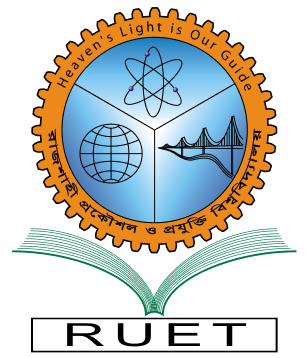The Rajshahi University of Engineering & Technology (RUET) and SDG 2: Zero Hunger
The Rajshahi University of Engineering & Technology (RUET) actively contributes to the success and achievement of the United Nations Sustainable Development Goal (SDG) 2: Zero Hunger, which aims to end hunger, ensure food security, and improve and promote nutrition and sustainable agriculture. Through its campus operational policies, specialized research efforts within departments like Chemical and Food Process Engineering, and community outreach programs, the university plays a pivotal role in advancing sustainable farming practices and combating hunger.
Addressing Food Security and Affordability among Students
Subsidized and Accessible Campus Food: The university ensures that students have reliable access to affordable meals through its centrally located Canteen and Cafeteria. These facilities provide diverse food options during working hours and mealtimes, helping to mitigate the financial burden of obtaining nutritious food, especially for students from low-income families.
Dormitory-Based Cooking Facilities: All student dormitories and residential halls are equipped with cooking facilities, empowering students to manage their own diets and food budgets. This crucial measure provides an essential self-reliance mechanism, reinforcing food security and minimizing external expenditure.
Student Social Welfare Initiatives: While formal food banks may not exist, RUET’s dedicated Social Service Clubs (as highlighted in the SDG 1 report) and student organizations frequently organize targeted food distribution and direct assistance programs for students facing extreme financial hardship, ensuring no student is excluded due to food insecurity.
Enhancing Nutrition and Food Safety through Academic Research
Food Process and Safety Research: Faculty and students within the Chemical and Food Process Engineering departments conduct applied research focused on maximizing nutritional value and ensuring food safety. Projects include the study of chitosan extraction from waste (like shrimp and crab shells) and its application in food preservation (e.g., coating bananas) to extend shelf life and reduce post-harvest loss.
Sustainable Food Drying Technologies: Research is underway on developing and optimizing solar-assisted intermittent microwave–convective drying systems for food commodities (like potatoes), promoting sustainable food preservation techniques that maintain nutritional integrity and reduce dependency on traditional, less efficient methods.
Analyzing Food Habits and Health: The Urban and Regional Planning (URP) department has engaged in studies examining the "Changing food and entertainment habits of university students" to assess their impact on health, guiding future campus policies aimed at promoting healthier dietary choices.
Promoting Sustainable Agriculture and Resource Management
Waste-to-Energy Conversion: Inter-departmental research, particularly in Mechanical Engineering, focuses on innovative methods for valorization of food waste through processes like hydrothermal gasification to produce clean energy (hydrogen). This initiative directly links waste management to resource creation, promoting a circular economy approach to food systems.
Environmental and Resource Economics: Research in the URP and Institute of Energy and Environmental Studies (IEES) departments addresses the critical challenges in sustainable water management, climate change adaptation in agriculture, and assessing the impact of chemical fertilizer use, providing data and models to inform policy on sustainable farming practices in the Rajshahi region.
Food Waste Reduction Awareness: Academic work is also focused on analyzing factors influencing in-home food waste awareness among urban households, with findings being used to develop effective consumer awareness campaigns for responsible consumption and better food management practices, directly tackling Target 2.1 (ending hunger) and Target 2.2 (ending malnutrition).
Community Outreach and Waste Reduction Initiatives
Zero-Waste Efforts: RUET encourages campus-wide initiatives aimed at waste minimization. Research on "Innovative Methods for Transforming Food Waste into Resourceful By-Products" serves as a knowledge base for developing practical, on-campus composting or upcycling programs to drastically reduce the volume of food waste entering landfills.
Community Food Distribution: During annual events and occasions like the University Day celebration, RUET students and staff often organize food distribution among orphans and vulnerable community members, translating the university's commitment to Zero Hunger into direct societal impact.
